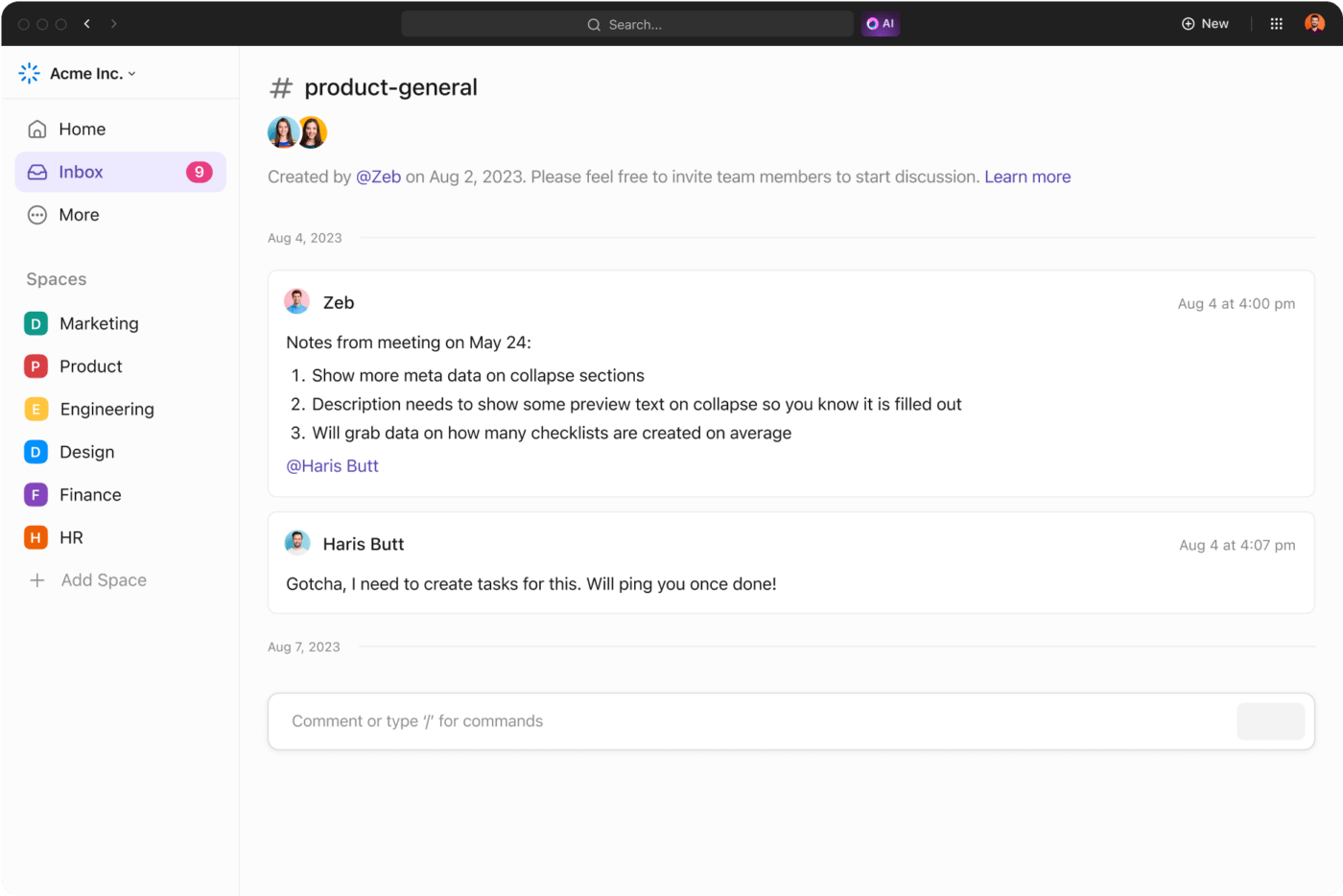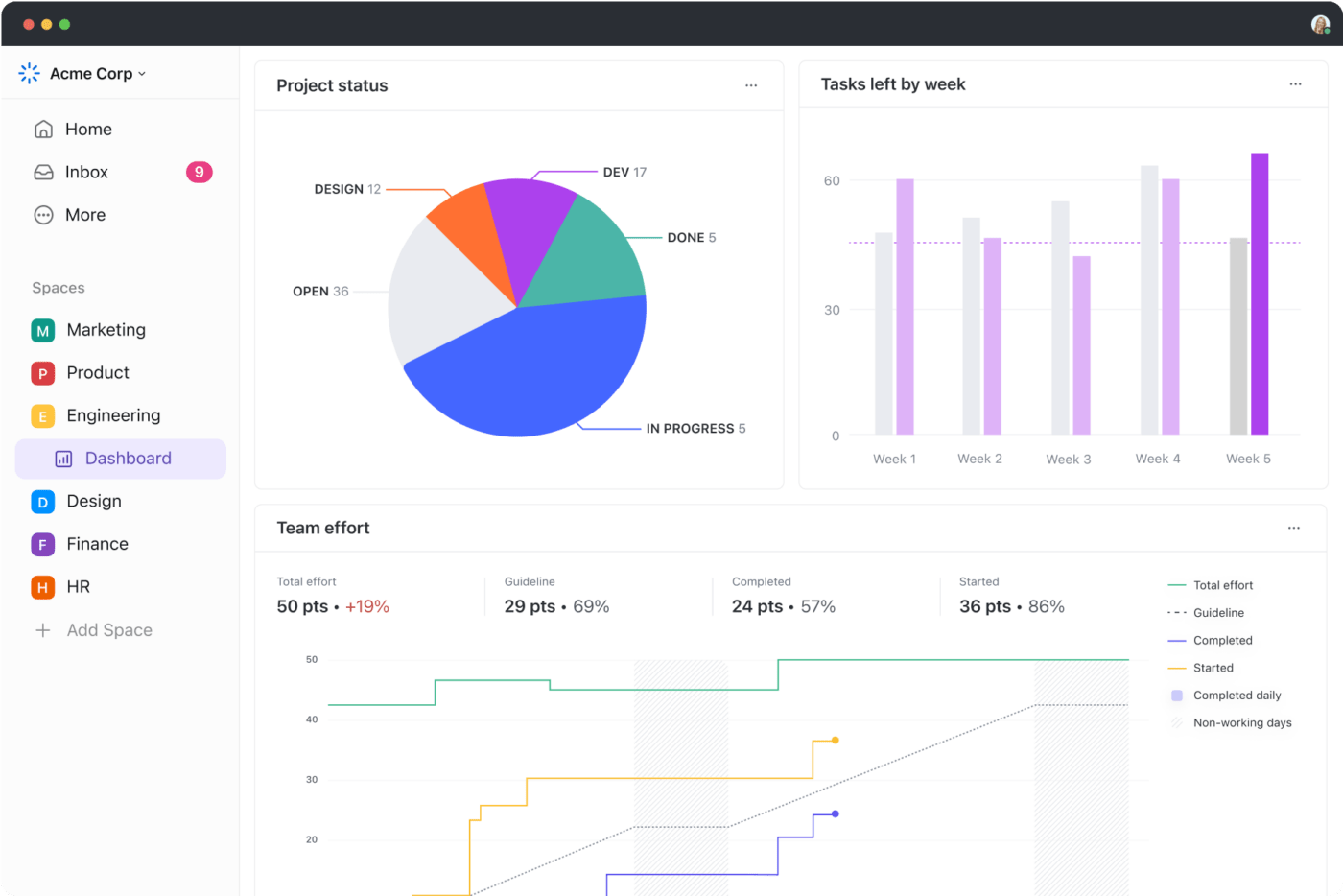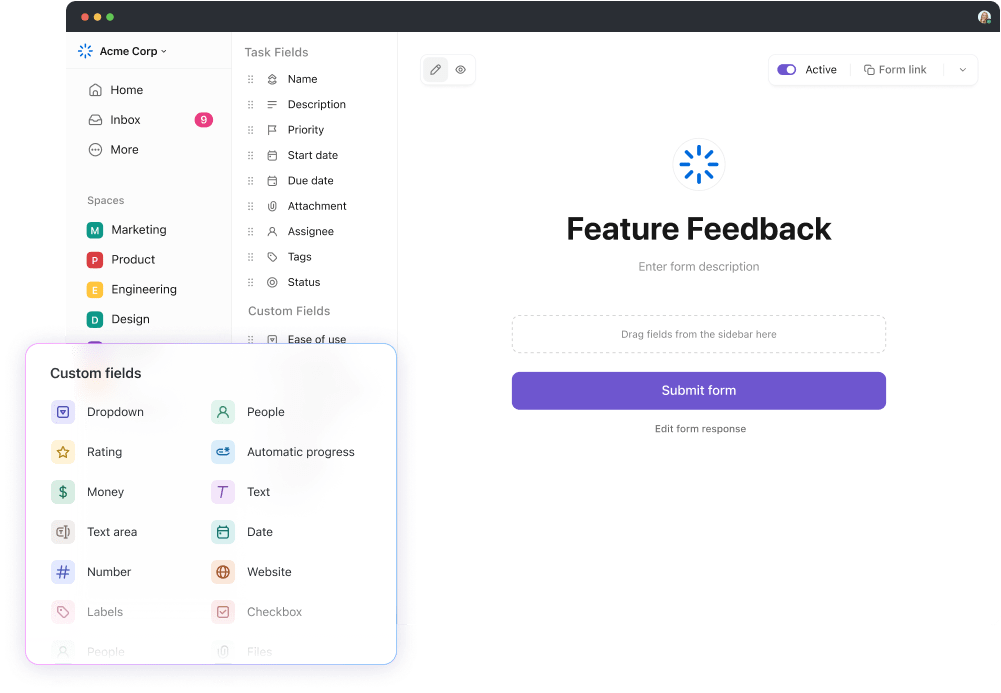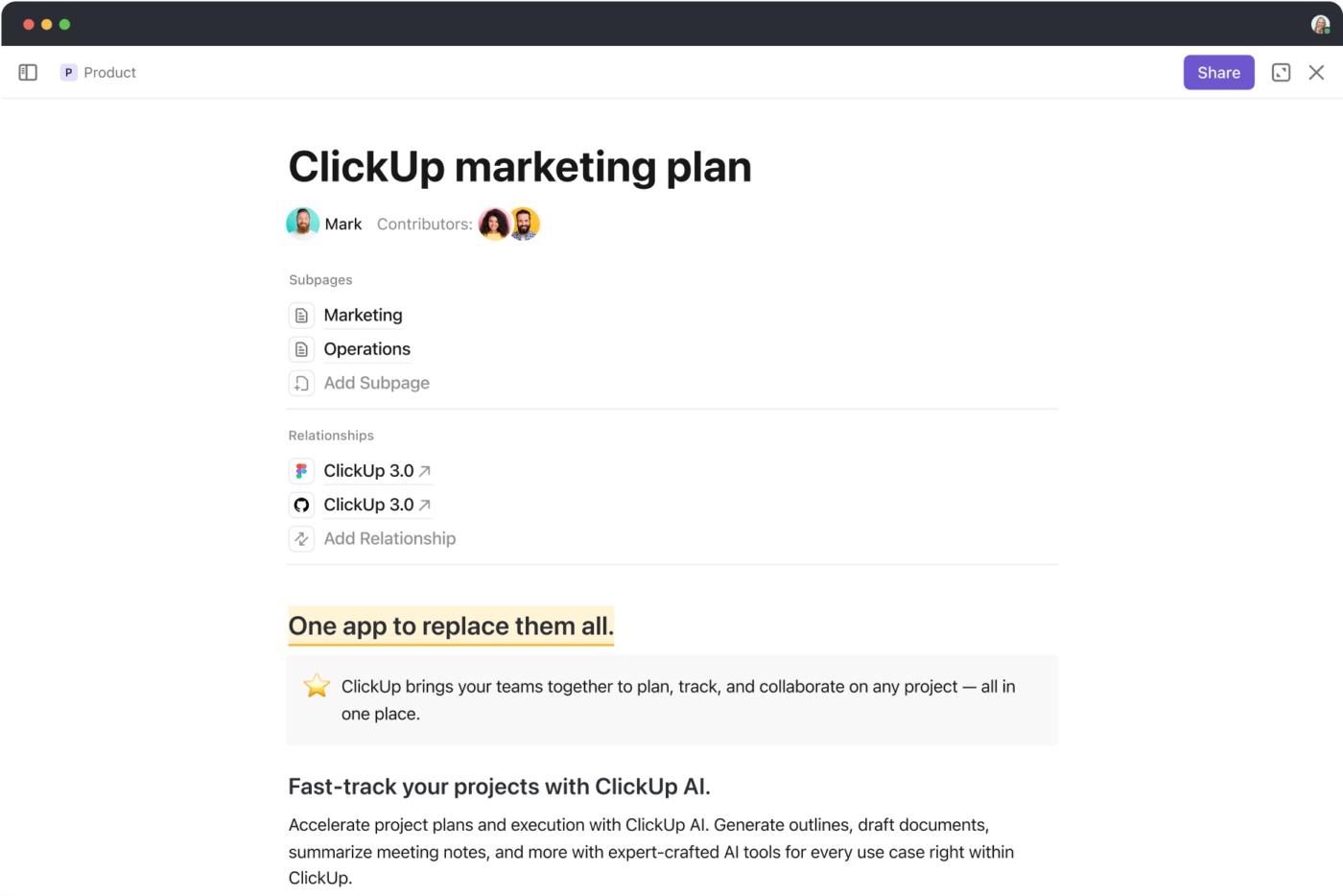10 Rapport-Building Questions to Build Trust

Sorry, there were no results found for “”
Sorry, there were no results found for “”
Sorry, there were no results found for “”

You’re in a virtual meeting with a prospective client. You’ve got your PowerPoint deck, trusty notepad, and a big smile, but you sense the client’s energy differs from what you expected.
You need to break the ice, and you need to break it fast. 🥶
Enter rapport-building questions—a series of specific questions aimed at establishing rapport and genuine connections with prospective and existing clients.
At its core, rapport building is about actively seeking to understand and connect with people, especially for sales teams looking to attract new clients.
Whether you’re collaborating with colleagues or engaging with clients, the right questions will transform these interactions, developing deeper engagement and driving collaboration.
In this blog, we’ll cover the top 10 questions to amplify your rapport-building efforts, helping you enhance both team dynamics and customer relationships.
Building rapport at work isn’t just about making daily interactions smoother; it serves as a cornerstone for deeper relationships and teamwork. Let’s look at the key benefits of building a rapport within your team and with any potential client:
Let’s say you lead a team where everyone feels heard and appreciated. How have you done this? By asking rapport-building questions, most probably! Regularly asking team members about their personal and professional challenges creates an environment where people are motivated to share ideas, participate, and actively listen.
Rapport-building questions improve the quality of brainstorming sessions and increase the team’s overall collaboration and creativity. You’ll notice a marked improvement in how your team tackles complex projects and builds meaningful connections with potential clients.
Productive communication is the backbone of any thriving workplace, and it starts with building trust. If you make it a habit to engage with your team on both professional and personal levels, you’ll open up lines of communication that transcend mere work tasks.
Rapport-building questions ensure team members and potential clients feel comfortable bringing up issues and ideas anytime, enhancing transparency and trust across the board. A team that trusts is a team that triumphs, and that makes all the difference in professional settings.
Rapport-building questions make work conversations more fun because they allow you to show genuine interest instead of asking surface-level questions or making small talk.
This results in a mutual connection with the client based on a trustworthy relationship instead of a generic transactional relationship. When people feel connected and valued at work, their job satisfaction and productivity soar.
The right questions transform routine sales conversations into an opportunity for meaningful conversation. Here are 10 great rapport-building questions you must ask to build mutual connections:
Use this rapport-building question as an opener in meetings, industry events, or even on a sales call. It invites the other person to share their immediate needs or interests, setting the stage for a focused and personalized interaction.
By understanding their reasons for engaging, you demonstrate genuine interest and commitment to providing tailored support, which enhances customer loyalty and satisfaction.
⚡️ Template Archive: If you’re looking to break the ice within the context of a team meeting, you can launch the session right away with a tool like ClickUp’s Ice Breaker Whiteboard Template. It allows you and your team to collaborate on an interactive whiteboard while answering icebreaker questions about each other or yourself.
A rapport-building question like this shows that you’re not just there to push your own agenda but are genuinely interested in enhancing their experience. It’s perfect for proactive customer service interactions or situations where you sense someone might be struggling.
Asking this during a new project kick-off, workshop, or when introducing a new process at work reveals invaluable context about the other person’s experience level and comfort with the subject matter. It shows that you are interested in their perspective and ready to tailor your customer support to their familiarity with the task at hand.
Effective rapport-building questions like these are ideal for follow-up interactions. The answers you get from this provide a better understanding of ongoing projects or roles where the other person might face challenges. It allows them to request help and positions you as a proactive ally in their success, building good relationships.
This question is essential during the project planning stages or when setting goals for professional development. It helps clarify expectations and align your efforts with their desired outcomes.
By paying attention and comprehending their end goals, you support the client or employee’s journey better and ensure that the path you suggest truly resonates with their aspirations.
A question of this nature is instrumental in reviews or feedback sessions. It encourages others to reflect on past experiences and offer insights to guide improvements or changes. Whether it’s a new role or a new product, understanding their historical context will help you tailor your approach to better meet their expectations and build trust.
Ask this question during problem-solving sessions or regular check-ins to encourage better customer rapport. It’s direct and designed to prompt immediate identification of current pain points, allowing you to prioritize solutions.
Additionally, using tools like ClickUp’s Form View to collect this information helps streamline the process, ensuring that nothing is overlooked and every issue is addressed promptly to help build rapport quickly.

Use this question to gauge emotional responses during key project milestones or after significant meetings. It helps you assess team morale and individual feelings about ongoing tasks. Understanding emotional undercurrents enables you to manage team dynamics, ensuring everyone remains motivated and engaged.
This question shifts the focus to the potential benefits and positive impacts of current efforts. It’s great for encouraging a positive work environment and is particularly motivating during challenging project phases. By asking team members to envision successful outcomes, you help them stay focused on the goals and promote a sense of optimism.
This effective rapport-building question is ideal for strategic planning sessions or personal development discussions. It opens a dialogue about personal and professional desires.
You may want to know whether someone plans to speak at future events or what they think of industry trends. In such instances, prioritize starting with this question and then focus on actively listening to the honest answer you’ll get.
In answering this question, individuals express what they hope to achieve, providing you with insights into their ambitions. This understanding will help you better support their growth and align organizational objectives with individual aspirations.
In a professional setting, effective rapport-building lays down the critical foundation for several key aspects of successful teamwork and organizational growth:
Practical rapport-building techniques are equally important in transforming how teams interact and function. Among these, using modern communication tools is crucial in building connections.
As an all-in-one productivity platform, ClickUp integrates communication into the heart of workflows, moving away from the traditional approach of separate, siloed communication tools.
Let’s look at how ClickUp can help you build better communication flows:

ClickUp Chat revolutionizes how team members interact daily, facilitating seamless communication essential for building rapport. This platform merges chat directly with workflow management, allowing team members to transform discussions into tasks instantly.
ClickUp Chat’s AI capabilities, like automatic task creation from the chat and suggested responses, help team members respond more efficiently.

ClickUp’s @mentions feature enhances workplace rapport by ensuring no one misses out on meaningful conversations or task updates. By mentioning team members in tasks, Chats, and Docs, you instantly alert them, making communication more dynamic and inclusive.
When you @mention someone in a task comment, they become a viewer of that task, receiving notifications and seeing their name highlighted in their Inbox, effortlessly keeping everyone in the loop.

ClickUp’s Assigned Comments feature revolutionizes how teams handle actionable feedback and tasks within comments. Vital tasks embedded in comments may often get overlooked, but with ClickUp, you can assign action items within comments directly to team members.
This method prevents tasks from getting overlooked and significantly enhances productivity. Users easily assign, resolve, or reassign comments, streamlining the process and eliminating confusion.
ClickUp Reactions provides a streamlined way to acknowledge and reply to comments within your tasks. This feature allows team members to express their thoughts and reactions quickly using emojis.
Show support, agreement, or understanding by simply clicking on the emoji icons, creating a responsive and interactive environment.

ClickUp Dashboards are an essential tool for monitoring personal and team progress, playing a pivotal role in building rapport within the workplace. By creating fully customizable dashboards, you visualize workflows, track project performance, and manage team workloads.
It helps in setting clear expectations and aligning team efforts, which is crucial for nurturing a supportive work environment and building trust

ClickUp Forms are handy for gathering and responding to feedback, a process fundamental to building and sustaining rapport within teams.
By using forms to capture insights and opinions from team members or customers, you create a culture of open communication and mutual respect. It allows you to dive deep into the team dynamics and ensure that everyone feels heard and valued, which is crucial for deeper connection and cooperation.

ClickUp Docs allows team members to collaborate in real-time with the ClickUp Collaboration Detection feature, ensuring that everyone is aware of who is working on the document and what changes are being made.
You can use it to prevent any overlap in work and ensure that all contributions are recognized, establishing teamwork and respect among colleagues.

ClickUp Whiteboards provide a dynamic way to brainstorm ideas visually. Teams collaborate on these whiteboards in real time, drawing, adding notes, or mapping out workflows.
This tool is especially useful for remote teams. It simulates a physical whiteboard session, helping to maintain creative collaboration and rapport regardless of physical location.
ClickUp’s Ice Breaker Templates help ease introductions and energize meetings within teams. These tools provide a welcoming environment that encourages members to share personal insights and emotions.
The ClickUp Get to Know Me Templates are great for building better understanding between teams. These creative tools are designed to introduce team members in a fun and engaging manner, helping build rapport and enhance team cohesion.
They enable users to share personal interests and professional experiences, which helps break the ice and promote a deeper understanding among colleagues.
Building rapport with your team improves communication and strengthens relationships. Here’s how to master the art of asking effective rapport-building questions:
Choosing the right words at the perfect moment makes a significant difference in how your rapport-building questions are received. Use open-ended questions instead of closed-ended ones that encourage detailed responses rather than brief yes or no answers.
Timing is also crucial; ask personal questions in casual settings where interesting conversation feels natural and relaxed, not during tense or formal meetings.
Active listening is essential when you want to build rapport among your colleagues or customers. Focus entirely on the speaker, acknowledge their statements with nods or brief verbal affirmations, and reflect on what you hear to confirm understanding.
ClickUp Docs helps you enhance communication within your team. Use it to take notes during meetings or one-on-ones, setting reminders for follow-up questions or actions. This helps keep track of individual needs and concerns and shows your team that you are attentive and proactive about their input.

Your body language speaks volumes about your interest and responsiveness. Maintain eye contact, lean slightly forward, and avoid crossing your arms to appear more open and attentive. Nonverbal cues like smiling and nodding also significantly make the other person feel understood and appreciated during conversations.
Building rapport is a delicate process that requires authenticity, deeper conversation, and attention to detail. To maintain genuine connections and trust within your team, avoid these common pitfalls when asking rapport-building questions.
Here are some common mistakes to avoid in rapport-building:
To avoid appearing insincere, it’s crucial to balance friendliness with professionalism and to align your verbal affirmations with your genuine reactions. Here are a few things that you could do:
Sometimes, automation tools may get ahead of you and get too robotic. While they are excellent for enhancing efficiency and organization, relying too heavily on automated messages like an automated outreach email can lead to impersonal interactions.
To avoid this, use ClickUp’s Custom Automations. For instance, automate reminders to follow up on projects or check in on a team member’s well-being but keep the messaging personalized.

Customize your rapport-building questions and messages, and make sure that automated responses are used when they add value to the communication rather than replace genuine interactions.
Elevating rapport skills is crucial for supportive and collaborative teamwork. Practical strategies like asking insightful questions, actively listening to customers, and showing genuine interest in your colleagues are all part of this process.
Effective tools like ClickUp are important for tracking these interactions and ensuring that no detail is missed. They reinforce the importance of each team member’s contributions and strengthen communication, trust, and productivity across your team.
Sign up with ClickUp today and revolutionize your team’s collaboration.
© 2025 ClickUp